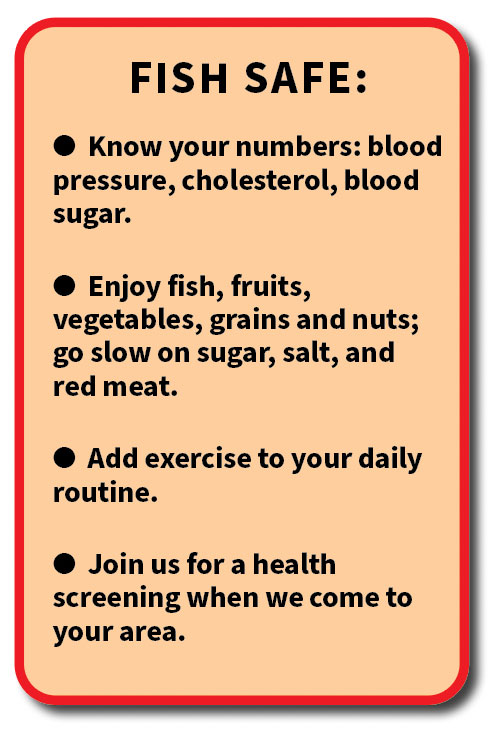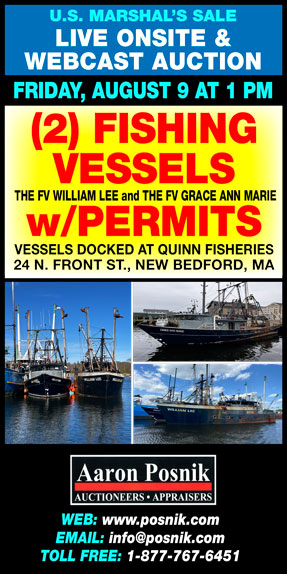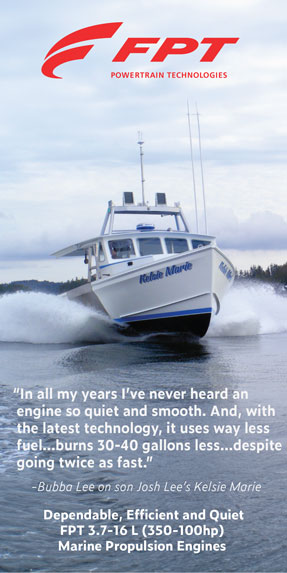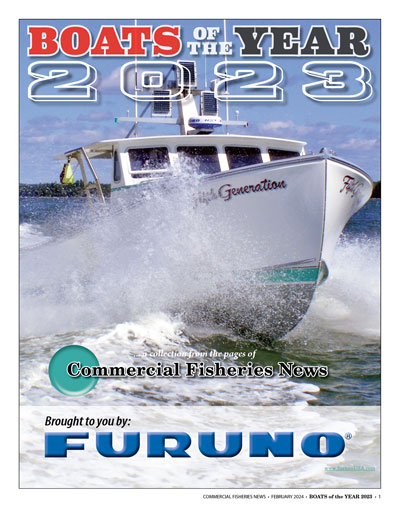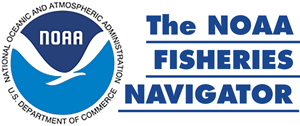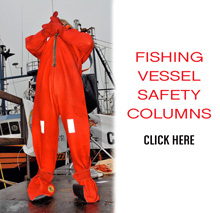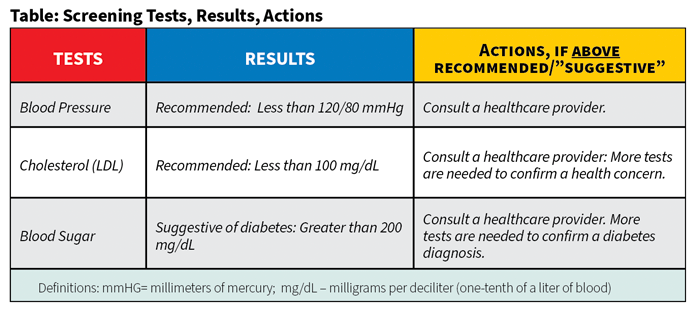
What’s a health screening for, anyway?
This past March marked the second year in a row the Maine Fishermen’s Forum (MFF) in Rockport, ME was postponed due to COVID concerns. A much-anticipated annual event since the mid-1970s, the forum has traditionally brought fishermen and their families together to discuss the impact of federal and state regulations; hear about coastal research and community engagement projects; and talk with trade show exhibitors about everything from engines and rudders to brass fittings, paint, survival gear, lights, navigational equipment, insurance, bank loans, weather, and
safety.
The forum has also been the place where fishermen could count on getting their health screenings for blood pressure, diabetes, cholesterol, skin cancer and, sometimes, hearing.
Fishermen attending the MFF from all over New England count on these annual screenings. Fishermen who do not have a relationship with a primary care provider (PCP) benefit from them – as well as those without personal medical insurance.
Over the years, nurses in the University of Southern Maine (USM) training programs have provided these screenings at the forum. You know the location: the first floor of the Samoset Resort – handy to the quick lunch line.
Earlier this spring, I learned from my colleague, Tara Casimir (PhD, RN, Assistant Professor of Nursing at USM) and from a Machias-based fisherman about the forum – and the annual screenings – being cancelled for a second year. Dr. Casimir and I discussed setting up some health screenings to take the place of the MFF-based events.
Dr. Casimir (through the USM Coastal Community Partnership) organized and held health fairs for two island communities in Casco Bay: one on Long Island (April 7) and one on Chebeague Island (April 9). At each of these health fairs the nurses provided screenings for blood pressure, cholesterol, and diabetes. In lieu of skin cancer screenings, the group offered flyers, sunscreen, and UV-sensitive bracelets provided by IMPACTMelanoma. The number should be considerably lower than 100 if you have heart disease. LDL is the type of cholesterol that builds up in your blood vessels and constricts blood flow. If the build-up in the blood vessel (plaque) breaks off, a heart attack or stroke can occur. You can reduce LDL with a healthy diet that features fruits, vegetables, and grains over saturated fats.
According to the CDC , blood pressure is the force the blood puts on artery walls. In a garden hose, the water pressure is the force exerted on the inside of the hose. If there is a narrowing in the artery or hose (think nearly-closed nozzle), the pressure is higher. The newest guidelines from the American College of Cardiology and American Heart Association (2017) specify that 120 mmHg (systolic) over 80 mm Hg (diastolic) is normal. This guideline lists a systolic pressure of 130 mmHg or higher pressure as high blood pressure. This condition is also known as hypertension. (It used to be that the systolic pressure had to be 140 mmHg to be considered high.) You can reduce your blood pressure by eating a healthy diet, limiting salt and alcohol, smoking cessation, exercising regularly, and medical management.
Diabetes is categorized as Type 1, Type 2 or pre-diabetes. The random blood sugar test done in a community setting is a good screening tool for identifying high blood sugar. If your result is high, follow-up with a medical provider is needed to confirm a diagnosis of diabetes or if you are at risk (pre-diabetes). A blood sugar value over 200 mg/dL indicates diabetes. Losing weight and increasing exercise can help guard against pre-diabetes becoming Type 2 diabetes according to the CDC .
Please see the table for a summary of the numbers and the actions needed.
Why health screenings for fishermen?
Fishermen work in an isolated environment, often beyond the reach of rapid medical attention and frequently without a second person on board. In their work environment, fishermen experience extremes of stress; situations requiring quick bursts of heavy work; extremes of weather (hot/cold); the potential for dehydration; and irregular eating times. If they experience a heart attack, stroke, or low blood sugar (hypoglycemia) when offshore, that trouble can escalate while waiting to receive medical care.
Therefore (for fishermen, especially), health screenings provide an opportunity for them to know their blood pressure, cholesterol, and blood sugar levels and get them under control. The risk for serious medical situations is greatly reduced when existing conditions are adequately controlled.
The bottom line? Get screened.
We are planning additional screenings along the Maine coast for this summer and fall. Please contact me at <abackus@hsph.harvard.edu> if you would like to discuss arranging for a health screening for your harbor or summer event. We will do our best to help you make it happen. n</abackus@hsph.harvard.edu>
Ann Backus, MS, is the director of outreach for the Harvard T.H. Chan School of Public Health’s Department of Environmental Health in Boston, MA. She may be reached by phone at (617) 432-3327 or by e-mail at <abackus@hsph.harvard.edu>.
